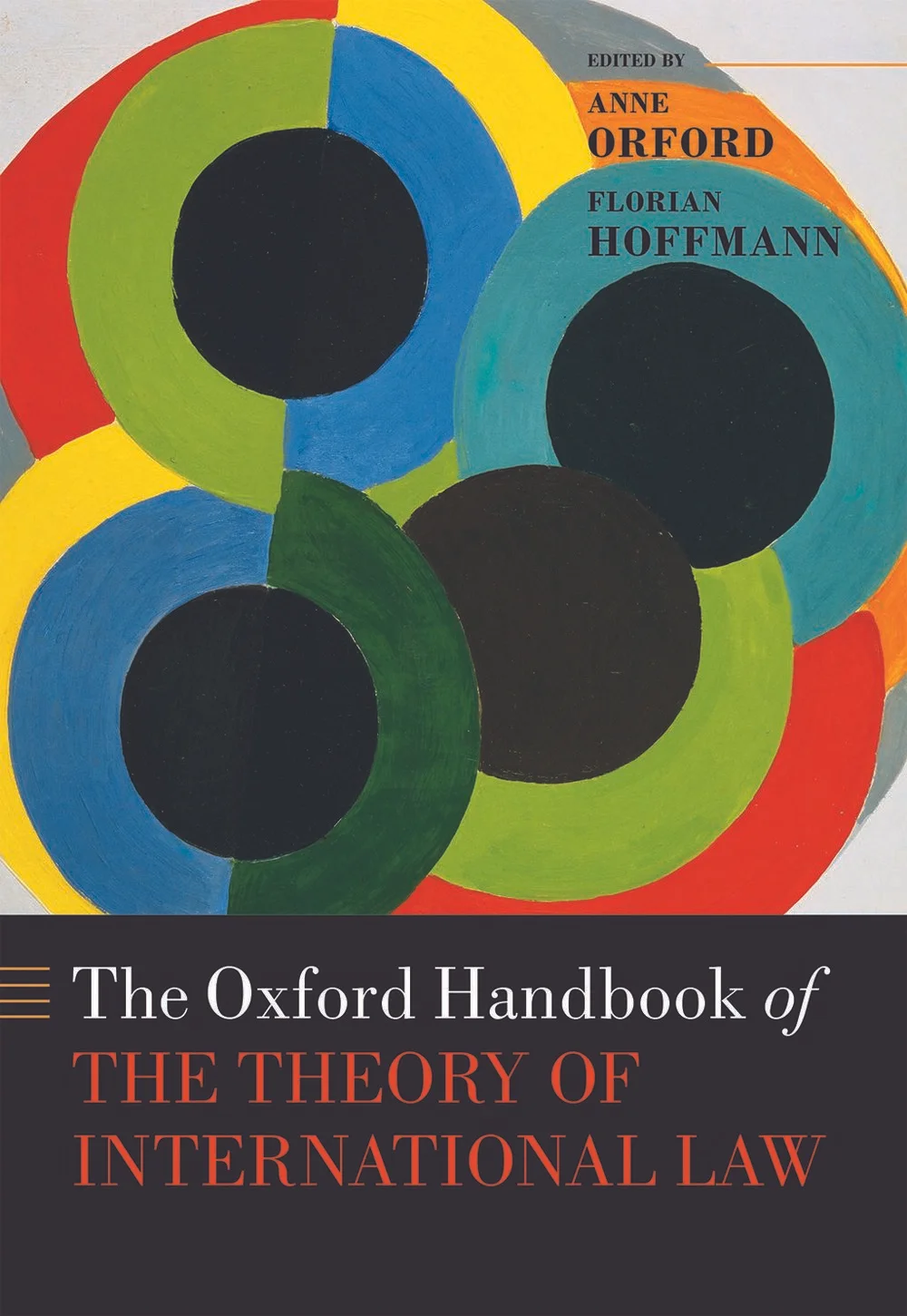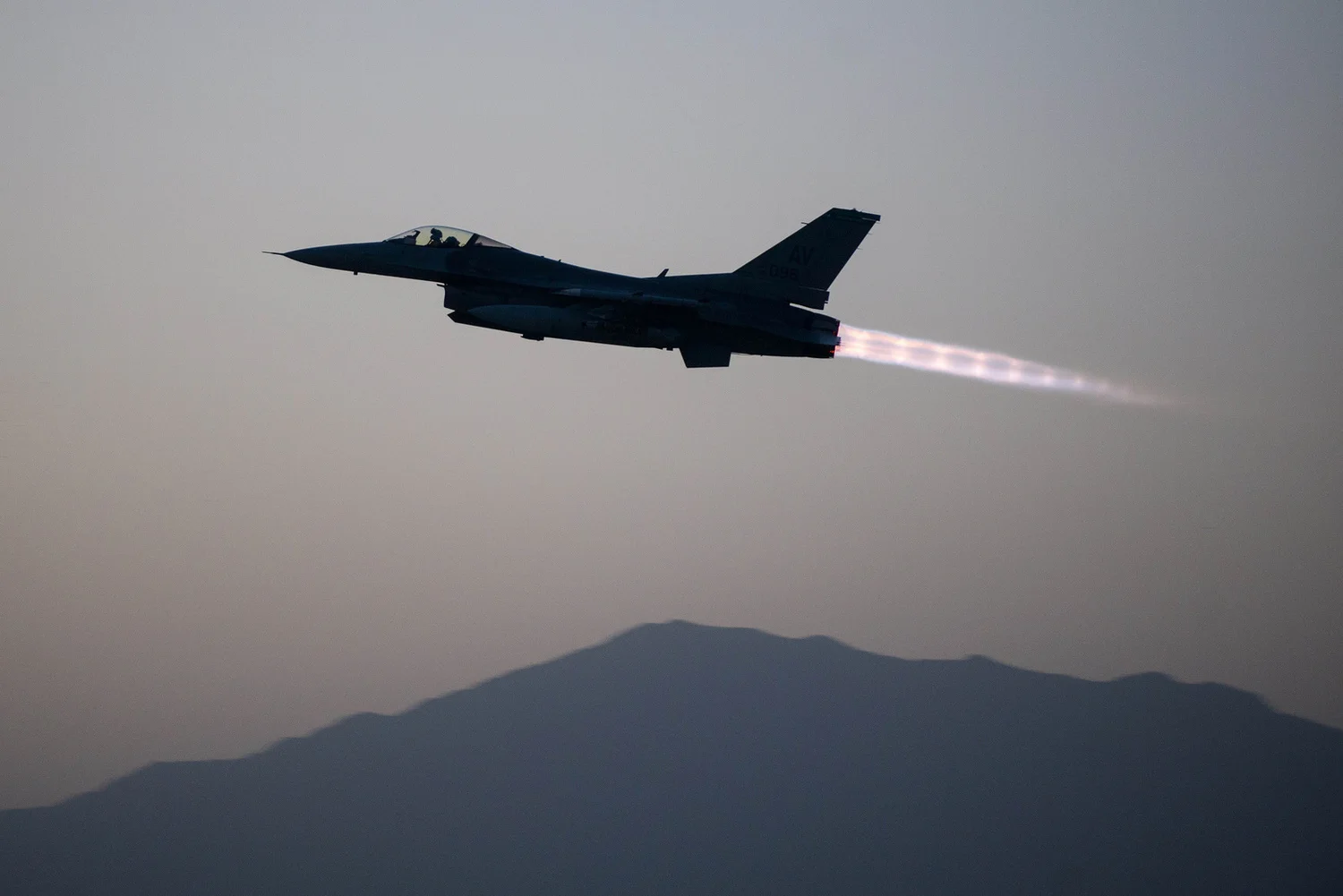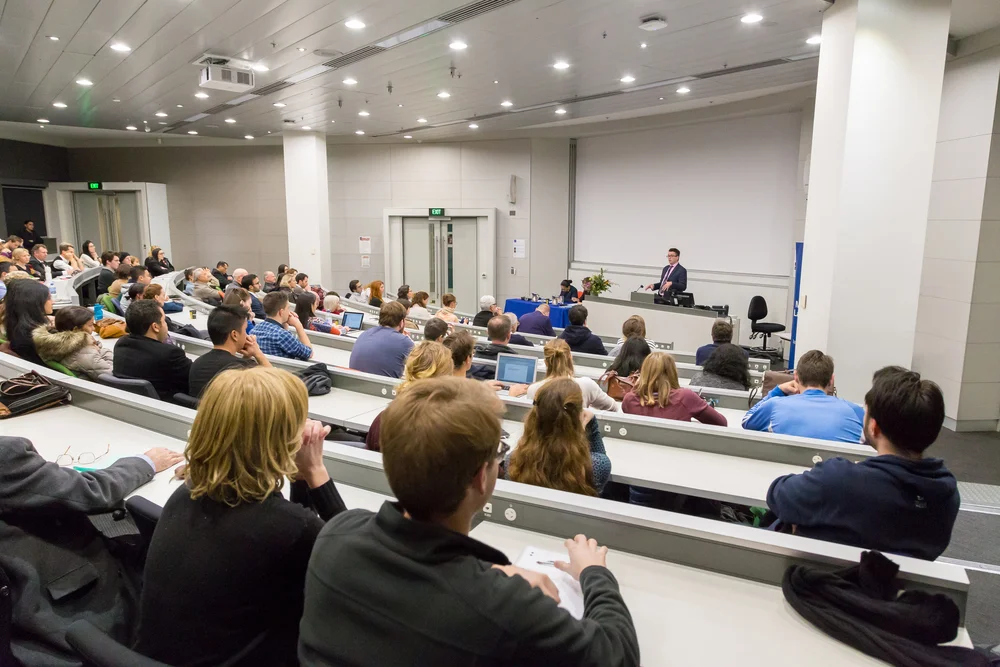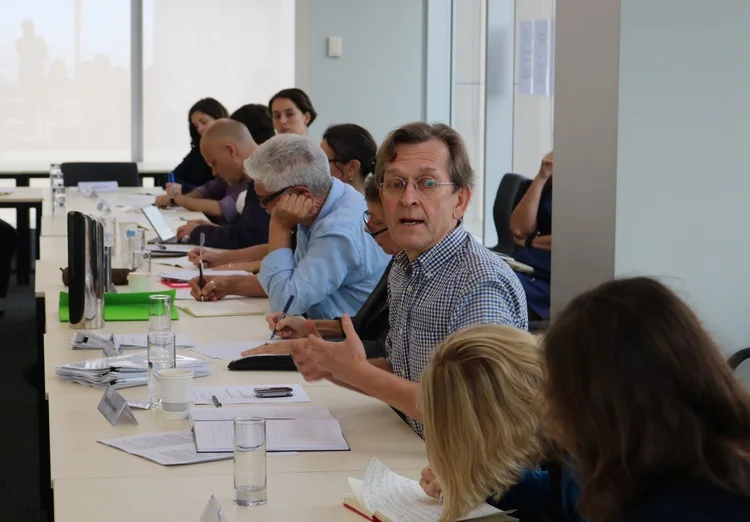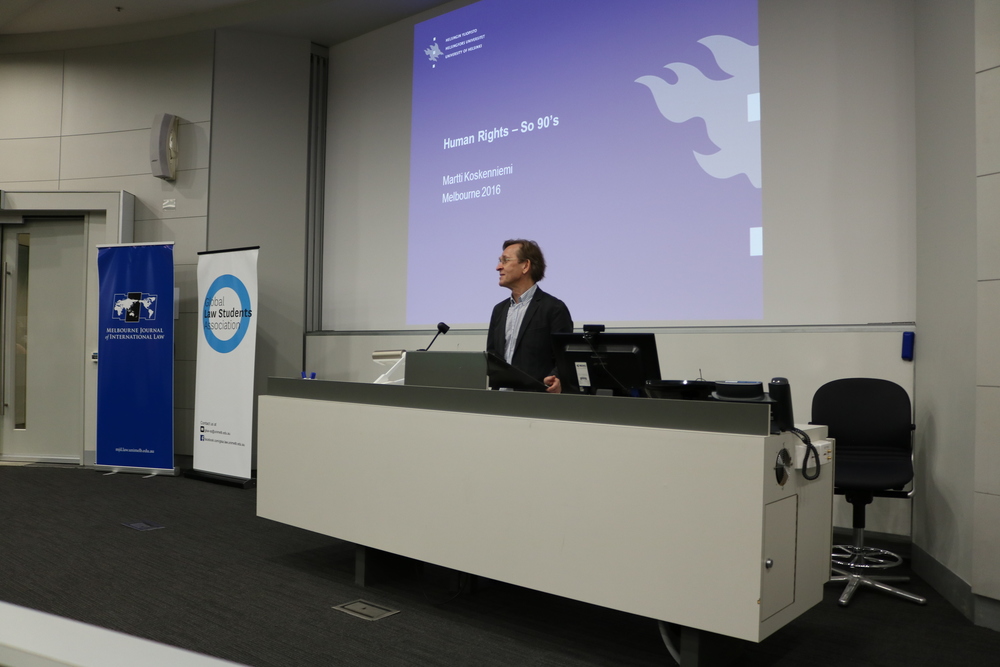Upcoming Events
Past Events
Marking 100 years since its creation, this conference will bring together scholars working in law, history, international relations, and political theory to think critically about the League of Nations, law, institutions, practices, ideologies and technologies in relation to or with a view from the South.
The Laureate Program in International Law with the Institute for International Law and the Humanities and Melbourne Law School is co-sponsoring the 11th edition of the Melbourne Doctoral Forum on Legal Theory, an annual interdisciplinary workshop hosted by graduate researchers at Melbourne Law School that brings together research students from a range of academic disciplines to engage with social, political, theoretical, and methodological issues raised by law and legal theory.
The recent election of Jair Bolsonaro is the latest episode in the rise of authoritarianism in Brazilian and global politics. This roundtable will reflect on the legal and political issues that led to the rise of the former army-captain on a platform of criminalisation, neoliberalism and contempt for human rights and minorities. We will discuss the implications of the recent elections in Brazil and what it can tell us about authoritarianism, fascism and law.
This conference brought together scholars working in law, history, international relations, and political theory to think critically about the ideology, institutions, practices, and technologies that condition modern humanitarianism and its relation to international law. Photos are available here, and further details are available at the conference website.
The Laureate Program in International Law will host the Seventh Annual Junior Faculty Forum for International Law from 28-30 May 2018. The Forum, co-convened by Anne Orford (MLS), Dino Kritsiotis (Nottingham), and Joseph Weiler (NYU), intensively workshops the research of selected junior international law faculty from around the world. Details are available at the Forum website.
The Laureate Program in International Law with Kent Law School are co-sponsoring the second workshop in Rose Parfitt's ‘Fascism and the International’ series, involving scholars, artists and activists working in and across international law, history, history of art, international relations, postcolonial studies, sociology, anthropology, political theory, geography, sound studies, feminist studies, queer theory, critical race theory and beyond. Details are available at the workshop website.
In this lecture, Professor Jan Klabbers explored the tension that exists between the putative public mission of intergovernmental organizations and the ways in which they relate to the private sector.
This lecture, delivered by Professor Susanne Krasmann, discussed the implications of the turn to ‘situational awareness’ for the governing of urban security. It explored how situational awareness, as an ethics of uncertainty, modifies our understanding of security; shapes urban subjectivity and collectivities; and how it refreshes our view of the social nature and operational mode of legal norms.
In this conversation, Philippe Sands discussed the various types of writing in which he engages (book, stage, film, radio); how this turn came about; its relationship with more traditional forms of scholarship and legal writing; and how creative non-fiction can illuminate the law.
This workshop explored critical approaches to scholarship in international law across different fields and different places of international law.
In December 2017, States parties to the Rome Statute of the International Criminal Court met to decide whether to activate the crime of aggression. At this public forum, Amanda Alexander, Martti Koskenniemi, Anne Orford, and Pål Wrange considered how histories of international criminal law can inform our understanding of current developments, and what the criminalisation of aggression might mean for the future of international law and order.
This conference marked the 100-year anniversary of the October Revolution and the passage of the revolutionary Mexican constitution.
Anne Orford presented a lecture on 'Civil War, Intervention, and International Law' and a seminar on 'Critical Thinking and International Law' at the Higher School of Economics (Moscow) as part of the International Law Lectures in Russia series.
In this keynote lecture presented at the launch of the Lund Human Rights Hub, Anne Orford explored what it means to study human rights as part of an institutional culture committed to critical thinking and academic freedom.
The Law Faculty at Lund University hosted a symposium to celebrate the launch of The Oxford Handbook of the Theory of International Law. Participants included Leila Brännström, Martin Clark, Thomas Gammeltoft-Hansen, Mónica García-Salmones, Geoff Gordon, Markus Gunneflo, Outi Korhonen, Martti Koskenniemi, Gregor Noll, Anne Orford, and Toni Selkälä.
The Laureate Program in International Law hosted the Melbourne launch of Anne Orford and Florian Hoffmann (eds), The Oxford Handbook of the Theory of International Law (Oxford University Press, 2016). The Handbook was launched by Melbourne Laureate Professor Hilary Charlesworth at Melbourne Law School on 19 October 2016.
In this lecture, Professor Naz Modirzadeh (Harvard) analysed the legal arguments developed by the US to justify its use of force as part of its 'global non-international armed conflict' against al-Quaeda and associated forces.
This workshop explored the shifting relationship between international humanitarian law and other fields of international law, and the ways in which the principles, practices, vocabulary, and logics of humanitarianism are transforming international law.
In this lecture, Professor Naz Modirzadeh (Harvard) and Professor Andrew March (Yale) explored some of the challenges posed to international law by the rise of militant forms of political Islam.
This roundtable explored whether a better understanding of the ideological and normative aspects of political Islam might inform international responses to the civil wars taking place throughout the Middle East and North Africa, and how international lawyers might better engage with the rival internationalisms being developed within political Islam.
In this lecture, Professor Anne Orford argued that contemporary international law is a laboratory for experiments in spatial ordering, and took the Mediterranean as a key site for grasping the ways in which this new spatial ordering is taking form.
The aim of this roundtable was to situate the 2016 asylum crisis within a broader field than that of migration and refugee politics alone, exploring its links with challenges to the social state in Europe and beyond, the conduct of interventions in civil wars in the Middle East and North Africa, and the possibilities offered by a renewed focus on social rights and inclusion in the European project. The roundtable was convened by Anne Orford, Gregor Noll, and Morten Kjaerum.
This workshop brought together senior scholars and early career scholars in law and the humanities interested in exploring the methodological challenges involved in undertaking interdisciplinary research at the intersection of international law, history, political theory, and political economy.
Professor Martti Koskenniemi is Academy Professor and Director of the Erik Castrén Institute at the University of Helsinki, and a Visiting Professorial Fellow with the Laureate Program in International Law. This lecture examined the triumph of human rights as a legal-political idiom in the 90s, and asked what has become of them today.
















